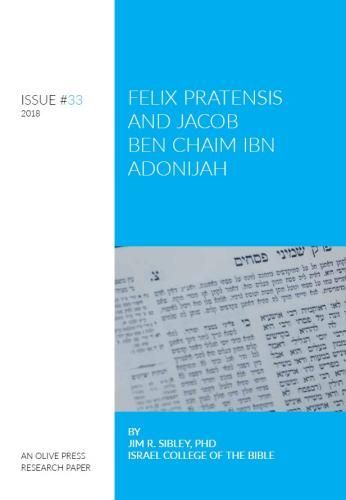Felix Pratensis and Jacob Ben Chaim Ibn Adonijah
BY JIM R. SIBLEY, PHD
ISRAEL COLLEGE OF THE BIBLE
Five hundred years ago, in the early 16th century, an interesting chapter in the history of the transmission of the Bible intersects with a remarkable story of the triumph of God’s grace. The work that was done at this time in establishing the text of the Hebrew Scriptures would last for centuries, but the transformation that took place in the lives of those who were involved in this work would last for all eternity. Not only that, but the work primarily of one individual would affect the Reformation, contribute to the translation of the Bible into common language, and eventually lead to the founding of the State of Israel.
From the 8th to the 10th centuries, a number of attempts had been made to translate portions of the Bible into English. These Roman Catholic versions had been based upon the Latin Vulgate, which was an earlier translation of the Bible into Latin, substantially by Jerome, in the early years of the fifth century. This meant that these later translations were actually translations of a translation. As such, they inevitably introduced wording and expressions that reflected the Latin, rather than the original Hebrew and Greek. To further complicate the picture, the Vulgate itself was subject to change by copyists, and this resulted in an increasingly corrupt text.
Even the Hebrew text was somewhat uncertain, as there were many discrepancies between the Hebrew manuscripts. These were, for the most part, relatively insignificant differences in spelling, vocalization, etc., but they raised questions about the reliability of the text. There was a need for a careful study of all the variants JIM R. SIBLEY, PHD 1in as many manuscripts as possible, in order to establish a more reliable text of the Hebrew Scriptures.

